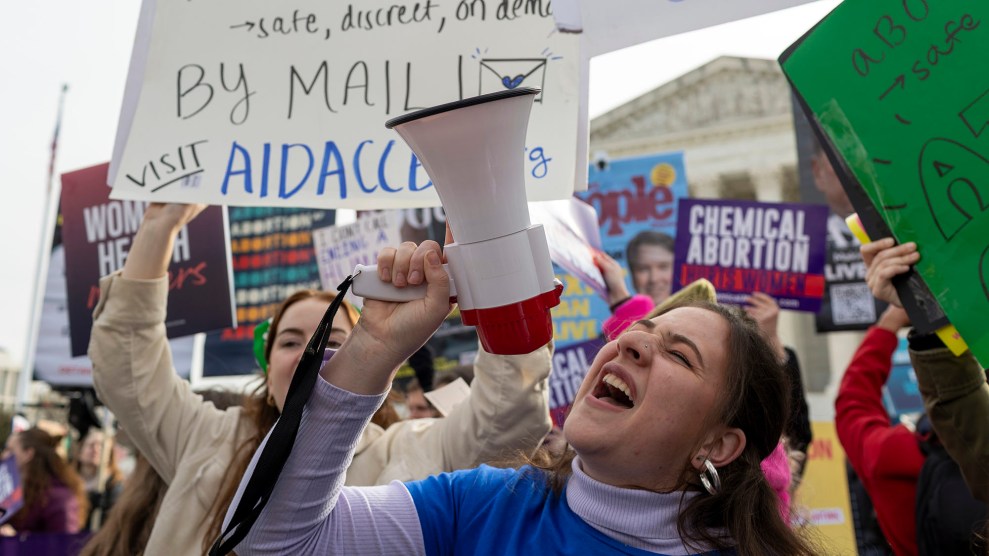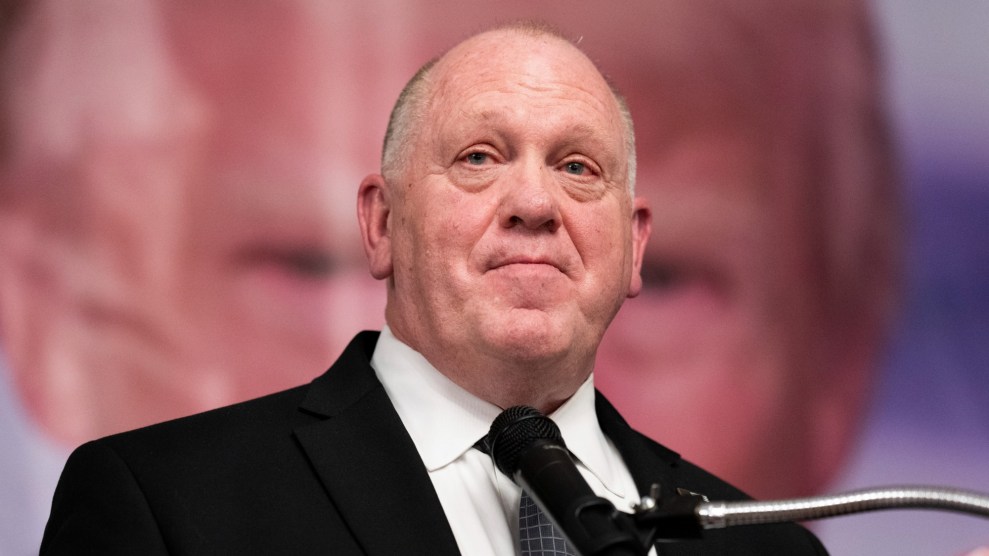Mother Jones: What’s the most promising new energy source?
Robert Bryce: The source isn’t new, but overlooked in the current energy discussion is natural gas. Regardless of how you feel about peak oil or global warming, the increased use of natural gas is a positive thing because it is being found at a rate that is faster than that of new oil reserves, it is relatively abundant, and our reserves are longer lived than our oil reserves. If you are concerned about global warming, the CO2 emissions from natural gas are half of those of coal. And yet, in the current energy discussion, natural gas is kind of the redheaded stepchild. It does not get the kind of attention it deserves.
MJ: What source is most overhyped?
RB: Wind. That is an easy one. The problem with wind resources is that they are, generally speaking, far from the demand centers. You can look at a map of wind resources in the U.S. and virtually the entire Southeastern U.S. has almost no wind resources, so the idea that wind is going to be a major player in a geographic area that’s, I don’t know, a quarter or a fifth of the geographic territory of the U.S.—it can’t be. Particularly given the perilous state of our transmission grid. Look at the blackout that just happened in Florida. The transmission grid that we have now cannot even handle the traditional or conventional fuel sources that we have. The second point is dispatchability. Wind, like solar, is incurably intermittent. The wind resources are generally not available on the hottest days of the summer when demand is at its highest.
MJ: If you had a million dollars—
RB: Couldn’t I just be king?
MJ: If you were king of the world and you had a million dollars, what kind of energy technology would you invest it in?
RB: Batteries. This is the same problem that frustrated Thomas Edison. We could have a huge breakthrough in batteries for the stationary market and the mobile market: That is the game changer. I have a chapter in my new book, Gusher of Lies, about this issue. I talk about what I call the super battery prize. Let’s offer a billion dollars to anyone who can create a cheap, compact, efficient battery that can store multiple kilowatt-hours of electricity, and let’s offer 10 billion to anyone who can create a multiple megawatt-hour battery with those some attributes. That would be the game changer both in terms of traditional generation sources and for the renewable sources like solar and wind. And would result in huge decreases in CO2 emissions, and it would be an enormous, enormous breakthrough. But people have been working on it since Edison’s day, and nobody has come up with it. The money to be made by a company coming out with a superior battery is enormous.
MJ: What will it take for renewable energy to go mainstream?
RB: It is always about economics. I am not a fan at all of ethanol. It’s a scam. But when it comes to solar in particular, and I’m far more bullish on solar than I am on wind, it is always about economics. Unless and until they can get to the point where they can compete truly head-to-head, unsubsidized, with national-gas-fired, nuclear-fired, coal-fired power plants, they are just not going to be viable.
MJ: Are companies doing the research to make this viable?
RB: Sure. Google just announced their own plans to get into the photovoltaic business. And their target is making their photovoltaics available at a cost that is competitive with coal-fired power plants. The high price of oil and coal and natural gas is the best thing that could ever happen to the renewables business. There’s no shortage of investment capital looking at these technologies.
MJ: What’s your favorite personal energy-saving trick?
RB: Turn off the lights when I leave the room. Turn off the computer when I leave the room. Just simple stuff. I ride my bike when I can instead of driving.
MJ: When do you think we are going to see the last gasoline-powered Hummer or SUV?
RB: Never. It’s just not going to happen. You know, all of these other sources are good ideas, but the problem is always about energy density. The reason we use hydrocarbons, liquid hydrocarbons, for our transportation is because they are so compact, easily transported and handled, and they have tremendous heat density, energy density. The auto companies are responding, but only to the extent that it makes economic sense for them, and the smart people I talk to, and some of the smartest, are the guys at Toyota. Yeah, they produce the Prius, but that isn’t where they make their money. They make their money producing traditional automobiles that use hydrocarbons.
MJ: What one policy change would go the furthest toward cutting fuel consumption in the U.S.?
RB: Well, the obvious answer, and it is not one that I favor, is a huge tax on fuel. I mean, obviously that would have an enormous impact if you slapped a one- or two- or three-dollar-a-gallon tax on motor fuel. But it is the wrong policy and I think there is no way that tax payers would stand for it, and therefore there is no way Congress would try to pass it. If the objective is to reduce oil consumption in the automobile fleet, then we need to substitute a different fuel for oil. And I think the oil that makes the most sense is natural gas. It has a fairly high energy density, much higher than that of batteries. We only import 20 percent of our natural gas versus 60 percent of our oil. It burns very cleanly and therefore has very few pollutants. And we have a lot of the infrastructure needed to make this happen. Now, we don’t have a lot of compressed-natural-gas filling stations, those are problems that can be overcome with the right investments and the right government incentives.
MJ: What’s your take on the most recent energy omnibus bill that was passed in December?
RB: It’s bullshit. Three hundred and ten pages of nonsense.
This bill does far more harm than it does good. They have mandated the production of 36 billion gallons of biofuels by 2022. There is no way that is going to happen. Not only is it bad policy, it is worse than the situation we have now. It has resulted in huge inflation in food prices because it is doing more to encourage the production of corn ethanol. It is providing yet more subsidies to the corn ethanol business, which is fiscal insanity. We’re making subsidized motor fuel out of the single most subsidized crop in America, which is corn.
MJ: Which side of the nuclear-debate fence are you on?
RB: If carbon dioxide is bad, and we want to keep the lights on, I don’t see many other approaches that are in the offing that can compete with nuclear. So if that makes me pro-nuclear, then that is fine.
MJ: Would you rather live next to a nuclear plant or a coal-burning plant?
RB: Nuclear. I don’t want to have to deal with the railcars or the trucks or the dust.
MJ: Is there anything that you think is the single biggest impediment to the development of new forms of energy?
RB: Congress. Well, that’s a joke. Yeah, it’s the first and second laws of thermodynamics. I think the general public doesn’t understand when it comes to energy how constrained we are in our ability to tap sources other than the ones we are already tapping. The same is true with the biomass from the fields and turning that into ethanol and making that into a viable motor fuel. Again, that’s fighting uphill against the laws of thermodynamics. People have been working on these issues for hundreds of years, but the reason they have not come up with something better is that fossil fuels are just really, really good at what they do.















